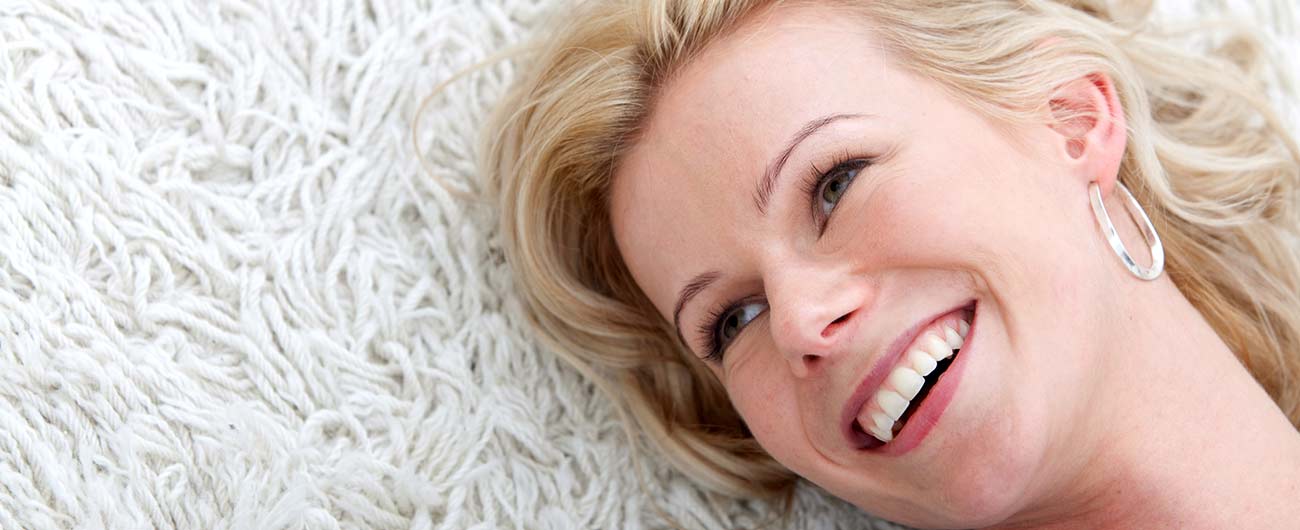Breathe Fresh with Effective Pet Odor Removal Tips
Posted on 19/09/2025
Breathe Fresh with Effective Pet Odor Removal Tips
Pet lovers know that owning a furry friend brings immeasurable joy, but persistent pet odors can sometimes dampen the experience. Whether you're a dog owner, a cat parent, or have other animals in your home, keeping your living space smelling fresh is essential for comfort and health. In this comprehensive guide, we'll explore powerful tips and techniques for effective pet odor removal, ensuring your home stays clean, inviting, and toxin-free.

Why Is Pet Odor Removal Important?
Persistent pet odors are more than just unpleasant. They can signal underlying hygiene issues, impact indoor air quality, and even affect your relationships with guests or housemates. Understanding the causes of pet smells is the first step in maintaining a fresh-smelling house where both humans and pets can thrive.
Common Sources of Pet Odor
- Urine and Feces: Accidents happen, especially among puppies, kittens, or aging pets.
- Poor Grooming: Dirt, dander, and oils can accumulate on your pet's coat.
- Pet Bedding and Accessories: These can trap fur, sweat, and bacteria, becoming a reservoir of smells.
- Saliva: Drool and oral bacteria can soak into furniture or toys.
- Ventilation Issues: Poor airflow increases the concentration of odors.
Top Tips for Effective Pet Odor Removal
Let's dive into actionable strategies to eliminate unpleasant pet smells and maintain a fresh, welcoming home environment.
1. Clean Up Accidents Immediately
Quick action is the number one rule in pet odor removal. The longer urine or feces remain on surfaces, the more they penetrate and cause persistent odors.
- Blot wet spots with paper towels or clean cloth immediately.
- Use an enzymatic cleaner designed for pet stains to break down organic matter and neutralize smells.
- Avoid ammonia-based cleaners as they can mimic the scent of urine, encouraging repeat accidents.
2. Regularly Wash Pet Bedding and Fabrics
Bedding, couch covers, and soft toys are prime odor traps. To refresh your space:
- Wash bedding and fabrics weekly in hot water with a pet-safe detergent.
- Add a cup of white vinegar to the rinse cycle to help neutralize tough smells.
- If possible, air-dry items outside in the sun to take advantage of natural deodorizing.
3. Groom and Bathe Your Pets Properly
Overlooked grooming is a frequent cause of strong pet odors. Here's what you can do:
- Brush your pet regularly to remove loose fur and dander.
- Bathe them with an appropriate pet shampoo every 4-6 weeks, or as recommended by your vet.
- Check ears, paws, and tails for trapped dirt or moisture--these areas can harbor bacteria and yeast.
4. Clean Hard Floors and Carpets
The best way to remove pet odors from flooring is a consistent cleaning schedule.
- Vacuum carpets and rugs at least twice a week, using a vacuum with a HEPA filter for best results.
- For deeper odors, sprinkle baking soda on carpets, let it sit for 15-30 minutes, then vacuum.
- Mop hard floors with a pet-safe cleaner. Incorporate vinegar to cut through stubborn odors, but check with your floor manufacturer first.
5. Improve Home Ventilation
Stale air and poor ventilation exacerbate bad smells. To breathe fresh air indoors:
- Open windows regularly to allow airflow.
- Use exhaust fans in key areas like kitchens and bathrooms.
- Consider investing in an air purifier with a HEPA or activated carbon filter designed for pet homes.
6. Address Litter Box Odors
Litter box odors are infamous for their persistence, but a few good habits can diminish the issue:
- Scoop waste daily and completely change litter at least once a week.
- Clean the litter box with mild soap and water; avoid harsh chemicals that may deter your cat.
- Use high-quality, odor-absorbing litter and consider a covered box or ventilation system.
7. Deodorize Soft Furnishings and Upholstery
Couches, curtains, and other textiles can absorb pet smells over time.
- Spot-treat stains with enzyme-based cleaners.
- Use fabric sprays or create your own with equal parts water and white vinegar, plus a few drops of essential oil (make sure the oil is pet-safe).
- Steam cleaning is highly effective for deep odors in upholstery.
Natural Remedies and DIY Solutions for Pet Odor Removal
If you prefer to avoid chemicals, plenty of natural pet odor removal options exist that are safe for pets and the environment.
Baking Soda
- Baking soda is a classic deodorizer. Sprinkle it on carpets or furniture, leave it overnight if possible, and vacuum thoroughly.
White Vinegar
- A mixture of vinegar and water (1:1 ratio) in a spray bottle can neutralize odors on most surfaces.
Activated Charcoal
- Charcoal bags or open containers can absorb lingering odors in closets, corners, and even shoes.
Lemon Juice
- Lemon's natural acidity helps break down odor molecules. Always dilute and spot-test first, as it can sometimes bleach fabrics.
Preventing Future Pet Odors
While cleaning is important, prevention is even better when it comes to pet odor control. Here's how you can keep your house smelling fresh all year round:
- Feed your pet a balanced diet to minimize smelly excrement.
- Maintain a regular wellness schedule, including vet check-ups, to address potential health issues contributing to odors.
- Use waterproof, washable covers for bedding and furniture.
- Groom and bathe pets on a consistent schedule.
- Train pets to avoid soiling indoors and use designated potty locations.
When to Seek Professional Pet Odor Removal Services
If you've tried all the home pet odor removal tips and the smell persists, it may be time to call in professionals. Pet urine can soak deep into subfloors and walls, requiring specialized treatments. Expert cleaning companies often use industrial-grade enzymatic cleaners, steam extraction, or ozone treatments for the toughest jobs.
Best Commercial Products for Pet Odor Elimination
Sometimes, a store-bought solution is the most efficient choice. Here are popular products highly rated for their effectiveness in pet odor elimination:
- Enzyme Cleaners: Brands like Nature's Miracle and Rocco & Roxie dependably break down odor-causing bacteria.
- Odor-Neutralizing Sprays: Febreze, Angry Orange, and Bissell offer options safe for homes with pets.
- Pet Air Purifiers: Look for models featuring HEPA and carbon filters, such as the Levoit or Winix brands.
- Litter Deodorizers: Products infused with baking soda directly target cat box smells.

Frequently Asked Questions: Pet Odor Removal
Can pet odors affect health?
Yes, especially for people with asthma, allergies, or weakened immune systems. Chronic exposure to pet dander and bacteria-laden smells can irritate airways and reduce indoor air quality.
Is it possible to get rid of pet odor completely?
With consistent cleaning, grooming, and the right products, you can eliminate most odors. Persistent or mysterious smells may require professional diagnosis to rule out mold, leaks, or deep contamination.
Are essential oils safe for pet odor control?
Some essential oils are toxic to pets (especially cats and birds), so always research and use with caution. Opt for pet-specific freshening products or rely on proven natural remedies like vinegar and baking soda.
Conclusion: Enjoy a Fresh, Pet-Friendly Home
Breathe fresh and live happily with your beloved animals--pet odor removal doesn't have to be a constant struggle. By combining prompt cleanup, preventative care, natural remedies, and occasional commercial products, you'll enjoy a cleaner, healthier space. Whether you're a proud dog person, a devoted cat lover, or care for other animals, these practical tips will help you eliminate pet smells with confidence. And remember, a fragrant home means better health, happier guests, and even happier pets!
Apply these effective pet odor elimination tips today and reclaim the freshness in your home.
Latest Posts
Banish Damp Odors: Effective Methods Revealed
Achieve Pristine, Streak-Free Glass Every Time
A Step-by-Step Guide to Pristine uPVC Window Frames
Transform Your Floors with Professional Carpet and Hardwood Cleaning




 Rug Cleaning
Rug Cleaning  Steam Carpet Cleaning London
Steam Carpet Cleaning London  Upholstery Cleaning Services
Upholstery Cleaning Services